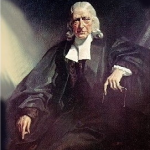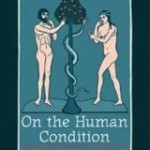A Test of Spiritual Experiences
Another ground of these, and a thousand mistakes, is, the not considering deeply, that love is the highest gift of God; humble, gentle, patient love; that all visions, revelations, manifestations whatever, are little things compared to love; and that all the gifts above-mentioned are either the same with, or infinitely inferior to, it.
It were well you should be thoroughly sensible of this, —’the heaven of heavens is love.’ There is nothing higher in religion; there is, in effect, nothing else; if you look for anything but more love, you are looking wide of the mark, you are getting out of the royal way. And when you are asking others, ‘Have you received this or that blessing?’ if you mean anything but more love, you mean wrong; you are leading them out of the way, and putting them upon a false scent. Settle it then in your heart, that from the moment God has saved you from all sin, you are to aim at nothing more, but more of that love described in the thirteenth of the Corinthians. You can go no higher than this, till you are carried into Abraham’s bosom.
— Farther Thoughts on Christian Perfection.
I think it is interesting that such a comment is made at the very outset of the Wesleyan movement.
With Wesley, at least, the goal was clear: genuine observable change in the lives of believers. The goal was Christian Perfection. Well, that’s the way Wesley stated it. We might say: Spiritual Formation. The experience and practices (the method) of the Methodist movement were intended to bring believers to this goal: lives lived (as much as is humanly possible) in conformity with the will of God.
But, as time went on, in the Holiness movement (and then, even more so in the Pentecostal and Charismatic movements) the emphasis began to shift from the goal of Christian Perfection to the crisis experience of cleansing and empowering that was believed to produce this way of life. If people would have a genuine experience of the Spirit, then “holiness of heart and life” would be the natural result. Or, so it was thought.
It is very easy to put emphasis on unusual spiritual experiences, and off the routine business of day to day to day obedience and service. Spiritual experiences are wonderful, but they are not an end in themselves. A valid experience is judged by its fruit, and that’s why people interested in the spiritual world could totally go and get a psychic reading online to find out more about their spirit and their destiny.
And, here right at the beginning of all the Holy Spirit revival movements is this warning: Yes, but does our experience (whatever we call it) really mean more love? More love to God and to others? If it doesn’t mean more love, we’ve gotten off-track.








